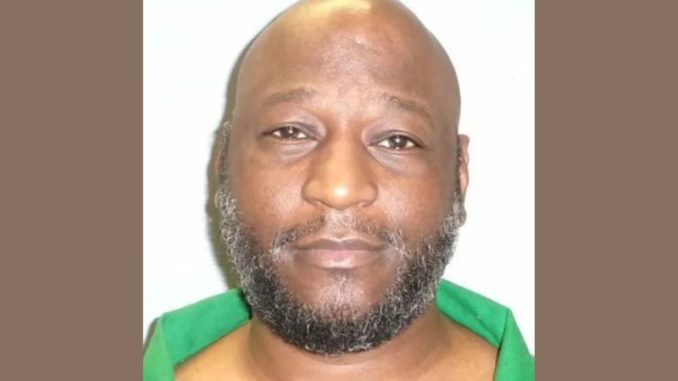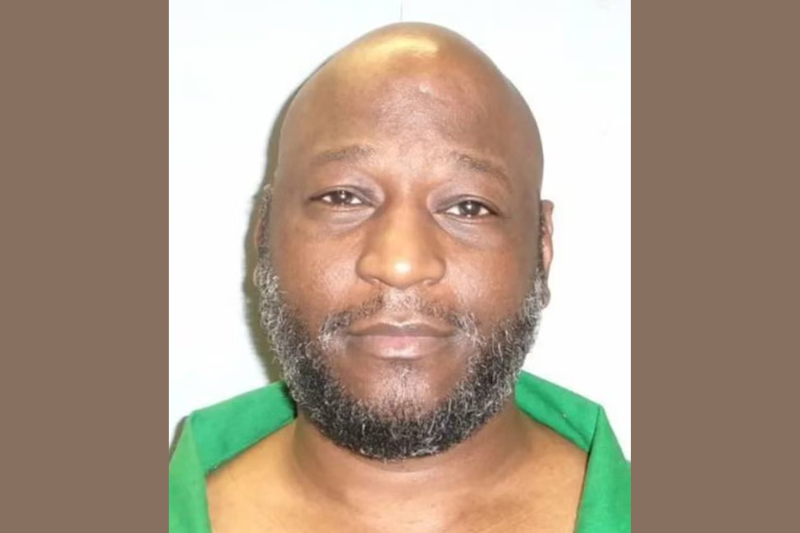

OAN Staff Abril Elfi
10:24 AM – Saturday, September 21, 2024
South Carolina has executed its first death row inmate in 13 years by lethal injection.
Advertisement
Khalil Divine Black Sun Allah, who was previously known as Freddie Owens, was executed by lethal injection at the Broad Broad River Correctional Institute in Columbia, becoming the state’s first execution in more than a decade and the nation’s 14th this year. His execution began at 6:35 p.m., and he died 20 minutes later at 6:55 p.m.
A jury in South Carolina convicted Owens of the armed robbery and murder of cashier Irene Graves at the convenience store in 1997. He was 19 at the time of the murder, in which Graves, 41, was shot in the head.
Graves’ son and son-in-law were present at the execution, as were family members of Christopher Bryan Lee, a former cellmate killed by Allah in 1999.
Owens has consistently denied being responsible for Graves’ murder.
His attorney continues to argue that his client did not kill Graves, and legal errors and false evidence are to blame for Owens’ conviction.
“Freddie Owens did not kill Ms. Graves. His death tonight is a tragedy,” his attorney, Gerald “Bo” King, told USA TODAY in a statement. “Mr. Owens’s childhood was marked by suffering on a scale that is hard to comprehend. He spent his adulthood in prison for a crime that he did not commit. The legal errors, hidden deals, and false evidence that made tonight possible should shame us all.”
Owens’ co-defendant in the robbery signed a sworn statement on Wednesday claiming that Owens did not shoot Graves and was not even at the scene of the crime, reversing his decades-old story.
Co-defendant Steven Golden told the courts that he testified against Owens as part of a secret deal with prosecutors. Golden retracted his testimony two days before the execution.
Golden, who served 28 years in prison for his role in the killing, admitted in a sworn statement that he lied to a South Carolina jury in the 1999 trial when he claimed Owens pulled the trigger. He also stated that he was high on cocaine and marijuana when he was initially arrested and questioned by police.
“Freddie Owens is not the person who shot Irene Graves at the Speedway on November 1, 1997,” Golden wrote in the sworn statement filed to the South Carolina Supreme Court. “Freddie was not present when I robbed the Speedway that day.”
Owens’ mother also begged state officials to reconsider, saying they were committing a “grave injustice” in light of a new sworn statement from a key witness in the case.
The statement did not sway the court or Governor Henry McMaster (R-S.C.), who denied Owens forgiveness shortly before his execution.
Irene Graves’ son, Arte Graves, told USA TODAY after witnessing the execution that he’s relieved the process is finally over, and that the last-minute sworn statement came too late.
“If it was true, I feel he should’ve said something earlier, that’s something that person will have to deal with their conscience,” Arte Graves said.
WYFF reported that Allah’s last meal included two cheeseburgers, fries, a well-done ribeye steak, six chicken wings, two strawberry sodas, and a slice of apple pie.
“No sign of any discomfort,” media witness Jeffery Collins of the Associated Press wrote. “Freddie Owens the whole way through, had maybe, like a small smile or certainly not a grimace or anything like that during the time that he appeared to still have consciousness when this was going on.”
South Carolina stopped executing inmates when it ran out of the drugs required for lethal injections in 2011. In the years that followed, the state implemented the use of the electric chair and death by firing squad before passing a “shield law” to conceal all information about the drugs and procedures used in lethal injection.
Stay informed! Receive breaking news blasts directly to your inbox for free. Subscribe here. https://www.oann.com/alerts
Advertisements below

